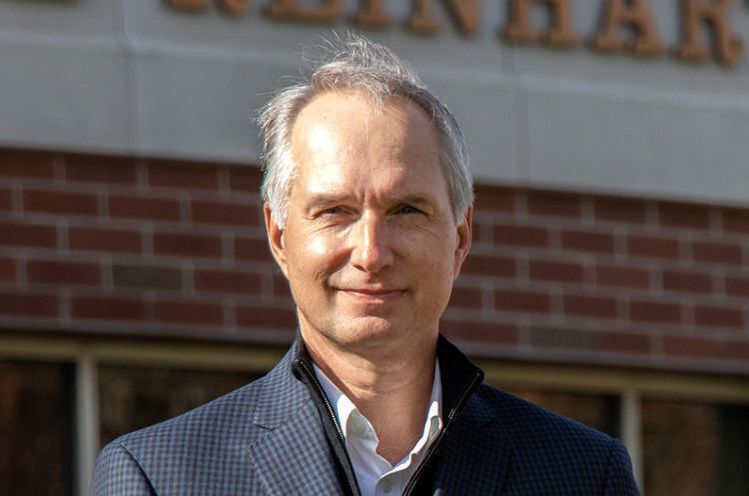Richard Kyte: How to nurture kindness in a world obsessed with evil
In the fall of 1989, I was doing research into the ways people justify doing harm to others. Sitting in the lower levels of the Johns Hopkins library, methodically working my way through a pile of readings about cruelty, I opened a book by Philip Hallie. There I found a description of a moment that changed his life:
“I came across a short article about a little village in the mountains of southern France … About halfway down the third page of the account of this village, I was annoyed by a strange sensation on my cheeks … I reached up to my cheek to wipe away a bit of dust, and I felt tears upon my fingertips.”
He explained that years of research into cruelty, studying the experiments Nazi doctors had conducted on children in the death camps, had drained away his humanity. Yet, when he encountered the story of Le Chambon-sur-Lignon and the villagers who risked their lives to save thousands of Jewish children during World War II, his body responded to the goodness that his mind had kept walled off. He eventually went on to write the first in-depth account of those heroic events in a book titled, “Lest Innocent Blood be Shed.”
Hallie’s story caused me to rethink my own research. Maybe I was trying to answer the wrong question. Maybe I should ask instead how people become committed to doing good. Reframing the focus of my research, I began to notice the many ways we attempt to prevent and punish bad behavior instead of nurturing goodness.
The average child hears the word “no” about 400 times each day. Businesses, professional associations and government bodies compose ethics codes consisting entirely of prohibitions. Republican legislators trip over themselves to prohibit teachers from teaching things they regard as harmful. Students at our nation’s top law schools are more interested in silencing speakers than listening to them. The heroes of our most popular movies, such as John Wick, specialize in killing those who kill.
This preoccupation with reacting to the wrongdoers also affects how we view history. Louis Pasteur saved billions of lives, yet students learn much more about Adolf Hitler.
For 16 years I’ve been involved in Holocaust education, working with colleagues to bring scholars and survivors onto campus to lead a workshop for teachers of history and literature. Many assume that spending time with survivors and hearing their stories must be unbearably depressing, but I have found that what I remember most vividly are the life-sustaining kindnesses both given and received.
I remember Nesse Godin, when asked how she managed to be so happy, replied that she could be cheerful during the daytime surrounded by friends, but the nightmares returned when she was alone in the dark. Of course, the darkness was still there, but when she told a roomful of children about the time an old woman in the camp shared with her a precious piece of bread, one could see the light of goodness shining through it.
I remember Gerda Weissman Klein telling about the day she was liberated. Two American soldiers pulled up to an abandoned factory where 150 young women, the few survivors of a months-long death march, had been deposited. Gerda saw the soldiers and uttered a word of caution: “We are Jewish, you know.” The soldier was silent for a long time, then he replied, “So am I.” He held the door open for her. “That was the moment of restoration of humanity, of humaneness, of dignity, of freedom,” she said.
I remember Magda Herzberger, at 90 years old, dancing about the stage for nearly three hours, reading love poems she had written to an adoring audience.
And I remember Peter Feigl, just a few days ago, smiling broadly as he talked about the day he was dropped off alone on a roadside in southern France at the age of 12, and how Daniel Trocme, who ran a boarding school for orphans in Le Chambon, met him and walked with him to the village. He told us about the old woman who, when asked why she and her neighbors risked their lives to help children like Peter, smiled and tapped the Bible in the crook of her arm: “I guess we all got caught up in a conspiracy of goodness.”
We tend to assume that if we root out bad behavior most of our social problems will be solved. But that is a naïve assumption. When our attention is focused only on responding to evil, we forget that the chief task of those who would make a better world is not to tear down but to build up.
What does it take to create more communities like Le Chambon, where parents and grandparents regard all children as “our” children? Where kindness and generosity are not regarded as exceptional but just what everybody does every day? Where people feel no need to “speak truth to power” but speak simply, humbly and honestly to everybody they meet as a matter of course?
The day after the workshop I had lunch with Stephen Feinberg, one of the nation’s top experts in Holocaust education. He had spent the past couple of days lecturing on topics including Nazi racial ideology, propaganda and U.S. relations with Nazi Germany. But we weren’t discussing those topics during lunch; we were talking about our lives, about what is most important to us.
“You know,” he said, “I think what I care most about is friendship.”
That is how it should be. If we want to be prepared to confront evil when it arises, we cannot wait until it arises to respond to it.
The hidden lesson of the Holocaust is that the heroes who rise up in resistance to evil have themselves been raised by communities of people committed to goodness. That is something we need to work at every day.

